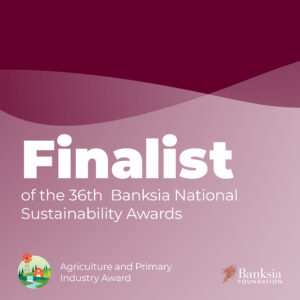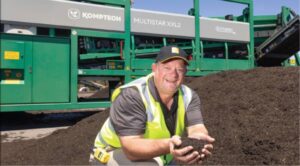Tonkin Highway and Roe Highway interchange
The Gateway WA Project linking Perth Airport to adjacent major arterial roads is the largest infrastructure venture undertaken by Main Roads WA. The one billion dollar project is funded from contributions from both Federal and State governments.
This involves major upgrades to the road network surrounding Perth Airport as well as the freight and industrial hubs of Forrestfield and Kewdale. The project is driven by an expected doubling of passenger air travel and road freight over the next ten years. Air passenger numbers are currently sitting at 10 million. Over the last 3 years passenger numbers have increased at a rate equivalent to 15 years of previously anticipated growth. Expectations now add up to an increase to 20 to 25 million by 2031.
With a footprint of 175 hectares this transport interchange, involving air, road and rail services, will facilitate movement of people and goods essential to the economy of WA. Respect for the environment in the project area has many facets including managing flora and fauna impacts, noise mitigation, aboriginal heritage, visual amenity landscaping and revegetation.
C-Wise a Mandurah based soil carbon company is supplying revegetation mulch for large areas, particularly at the southern end of the project centred around the Roe Highway – Tonkin Highway interchange. Also a high end mature soil carbon called Humicarb is being used for mature tree planting works in the landscape.
With such a large footprint what are the ways of reducing impact on the environment? Established trees have been marked and retained where possible and there is some salvaging of plant material for revegetation by means of direct transplanting or the gathering of cuttings and seed. Trapping and re-locating of fauna found in the project area has been undertaken as has the installation of fences to protect fauna such as the Southern Brown Bandicoot from predation. Revegetation of the site will be accomplished using local native species of plants. Rare and endangered plants will be transplanted into the adjacent Dundas Reserve in Forrestfield.
Within the project area are four endangered species of national significance, two plants and two birds. On the plant side of things there is the Wavy Leaf Smokebush (Conospermum undulatum) a long – lived shrub present around both the Roe and Tonkin highways. This is listed as vulnerable and the concerns about this plant centre on dieback disease, weed infestation as well as altered fire regimes as this is a fire dependent variety. The other threatened flora is the rare Macathuria keigheryi, which is generally only found if a fire has occurred in the previous few years.
Canaby’s Black Cockatoo is classed as “Endangered”. The region also provides habitat for the Forest Red Tail cockatoo which is classed as “Vulnerable”.
Soils in the project area are mostly classified as Bassendean sands, some of the least fertile natural soils on Earth. Most replanting in disturbed sites such as this occurs in imported sub soil and as a result there is very little organic matter to kick start new plants. The incorporation of C-Wise Humicarb and mulching with a composted material helps new plants by bringing soil biology to the impoverished sand.
Dieback disease and weeds are already present in the project area so it is essential that any soil improvers or mulch materials introduced to the site be composted to ensure freedom from weed and disease organisms. Also mature soil carbon products are actually antagonistic to pathogens such as dieback disease.
There is a doubling of the environmental benefits here as the products supplied by C-Wise to the project are all recycled organics. Essentially these are waste materials that have been rescued from going to landfill and converted into high quality soil improvers and mulch by a sophisticated, controlled composting system.
The supply of C-Wise composted soil carbon materials will commence in November 2014 under a contract awarded in July this year. Around 30,000 cubic metres will be delivered to the construction site over 5 months. C-Wise have focussed their business around agriculture, pasture, turf and production horticulture including vegetables, fruit and viticulture; with nutrient rich composted products. A specific ‘fit for purpose’ blend has been prepared for the Gateway project for local area native plants that have a lesser demand for nutrients. A new compost production line called the “Keralup” process after the wetland system to the East of the Nambeelup facility, uses as its main input, verge collected greenwaste from several city councils.

Gateway staff planting rare and endangered Macathuria keigheryi

Southern Brown Bandicoot needs protection from predators
Photos courtesy of the Gateway Project







